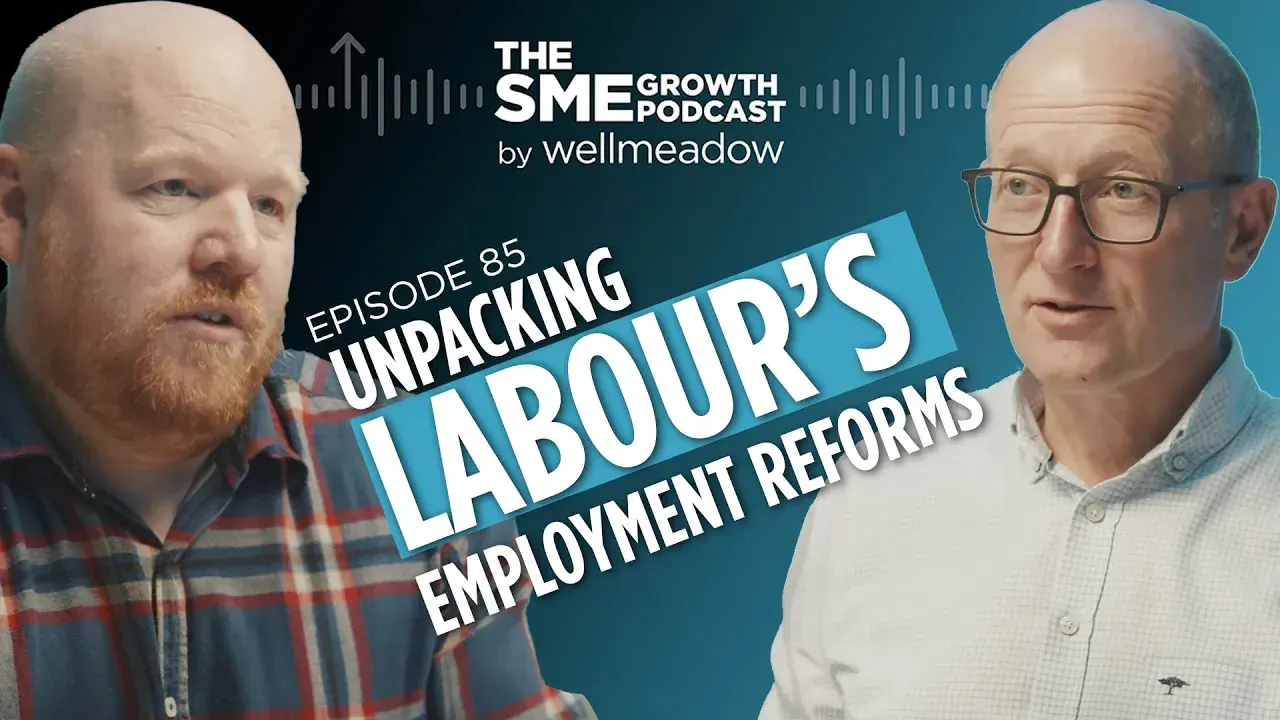Episode 84: Driving Business Growth with RevOps
In this episode of the SME Growth podcast, Rich and Dave explore Revenue Operations (RevOps),...
By: Pete Johnson on Sep 5, 2024 8:45:00 AM

In this episode of the SME Growth podcast, Rich and Dave examine Labour's proposed employment law changes, breaking down nine key areas of reform and their potential impact on SME businesses. They provide practical insights and expert commentary on what these changes could mean for business owners and managers.
You can listen to the full episode here
Key Topics Discussed:
Quotes to Remember: "Most employers already use the processes that kick in in two years earlier than they need to anyway - if it's good for those employees, why not do it for all of them?"
"You've got to try and look for the opportunities in these situations... have another look at your selection recruitment processes and make them as robust as you can."
"The laws are there to try and weed out the bad employers, but they sort of catch in their crossfire all the rest of us that are trying to do a good thing."
Top Takeaways:
This episode provides valuable context for business owners and managers trying to understand the implications of proposed employment law changes, emphasising practical approaches to implementation while maintaining business efficiency.
In this episode of the SME Growth podcast, Rich and Dave explore Revenue Operations (RevOps),...
In this episode of The Fractional CFO podcast, host Adam speaks with Dave Parry, Managing Director...
In this episode of the SME Growth podcast, Rich and Dave explore the nature of risk-taking in...